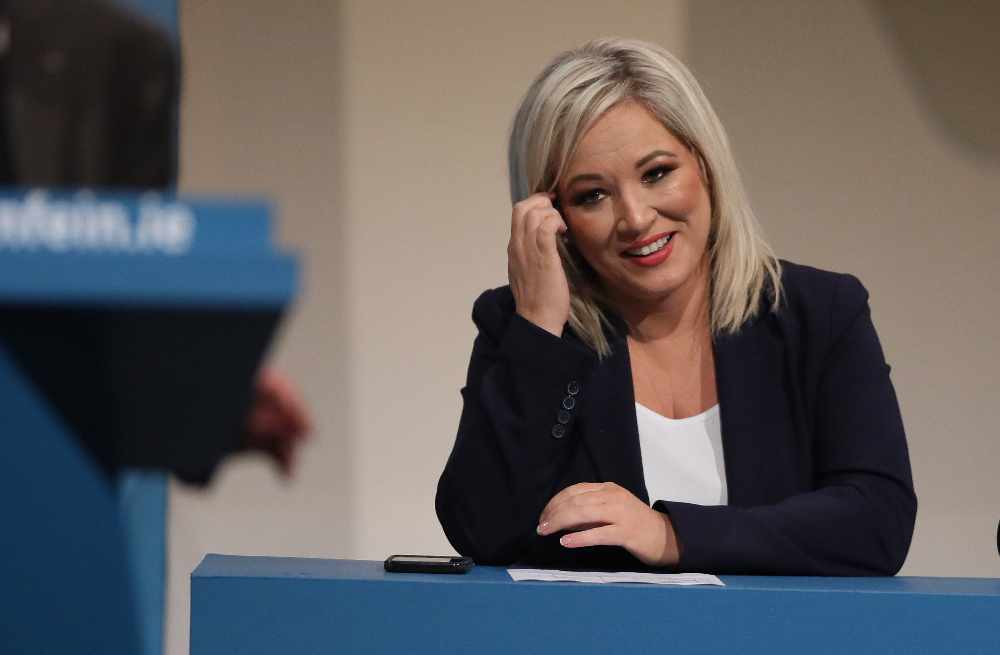
By Q Radio News/ PA
A collective of unionist and loyalist groups has called on their political leaders to publicly declare support for a series of red lines for restoring powersharing.
The amalgamation of groups, which have come together under the title Union of Unionists, have written an open letter to the leaders of the main unionist parties asking them to state their position on five key tests.
The 16 groups that have signed the open letter to the DUP, UUP, TUV and PUP include the Apprentice Boys of Derry and the Loyalist Communities Council – the latter a representative group for three loyalist paramilitary organisations.
Along with commitments around over-riding the terms of the Northern Ireland Protocol and protecting UK sovereignty, the groups are also demanding reform of Stormont laws to prevent the scenario of a first minister not being drawn from the largest community designation (unionist or nationalist) in the Assembly.
Under changes brought about by the 2006 St Andrews’ Agreement, the largest party at Stormont is entitled to the first minister’s job, regardless of whether that party is from the second largest designation.
That means Sinn Fein will be entitled to the first minister’s job if it is returned as the largest party on May 5 even if, overall, more unionist MLAs than nationalist MLAs are elected.
The pro-union amalgamation claims that would run contrary to the original principles of the 1998 Good Friday/Belfast agreement.

Michelle O'Neill
The open letter states: “There can be no democratic basis for the election of a non-unionist First Minister if the largest designation of MLAs is unionist.
“This was the intent behind the FM/DFM provisions in the Belfast Agreement as passed by referendum, that FM and DFM, although co-equal should be drawn from the largest and second largest designations and have the confidence of the NI Assembly. These provisions should be restored.”
The group also called on the main unionist parties to declare their support or opposition to implementing the cultural provisions of the 2020 New Decade, New Approach agreement, including legislative protections for Irish and Ulster Scots.
After outlining the five tests, the letter states: “It is our view that in the absence of these key tests being satisfied there is no sustainable basis for unionist/loyalist support for the powersharing institutions in Northern Ireland.
“The core ingredients of the Belfast Agreement were a balance between the constitutional and identity rights and aspirations of both communities in Northern Ireland.”
The letter concludes by claiming the Northern Ireland Protocol has shredded the provisions of cross-community consent in the 1998 accord.
“We reaffirm our commitment to a shared and peaceful Northern Ireland whereby all citizens can feel comfortable and be treated with equal respect and dignity within the United Kingdom,” it stated.
“As a political leader of unionism we ask you to publicly declare your commitment to these tests, and to support the grassroots campaign to encourage transfers of votes within the unionist family.
“This can maximise unionist representation in the next Assembly should it transpire that sufficient changes have been made that enables unionism and loyalism to support the restoration of the powersharing institutions.”



 Rescue operation to free 40 cows after lorry overturns on motorway
Rescue operation to free 40 cows after lorry overturns on motorway
 New date set for trial of former DUP leader Jeffrey Donaldson and wife
New date set for trial of former DUP leader Jeffrey Donaldson and wife
 Shared education campus ‘symbolic’ in Northern Ireland’s reconciliation journey
Shared education campus ‘symbolic’ in Northern Ireland’s reconciliation journey
 Man jailed for seven years after crash which killed two teenagers
Man jailed for seven years after crash which killed two teenagers
 Couple died after Covid ‘taken into house by carers’, daughter tells inquiry
Couple died after Covid ‘taken into house by carers’, daughter tells inquiry